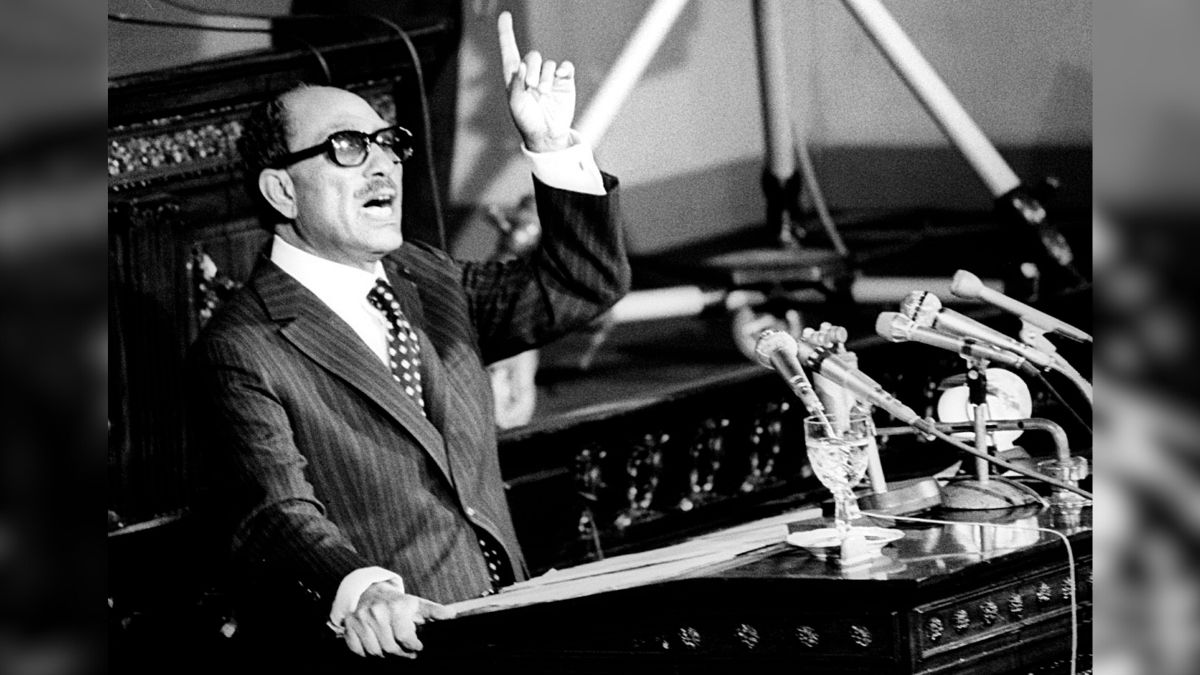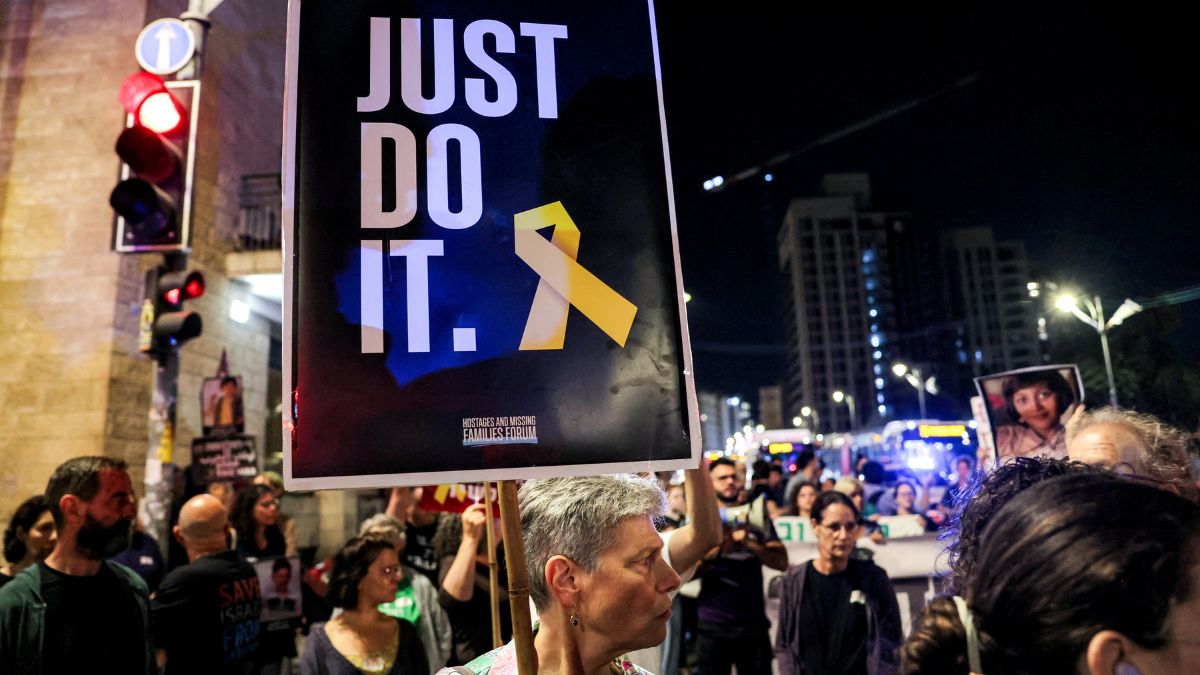October 6 has been marked by assassinations, wars, and political upheavals that have reshaped much of the world today.
The assassination of Anwar Sadat in 1981 remains the day’s defining event, altering Egypt’s and the broader region’s trajectory.
The annexation of Bosnia in 1908 set Europe on the path to World War I; the Yom Kippur War of 1973 redefined Arab-Israeli relations and global energy politics; and the arrest of China’s Gang of Four in 1976 ended a turbulent revolutionary era.
We take a look at them in this edition of Firstpost’s History Today series.
The assassination of Anwar Sadat
On October 6, 1981, Egyptian President Anwar Sadat was assassinated during a military parade in Cairo, one of the most dramatic political killings of the late 20th century.
The attack, carried out by Islamist extremists within the Egyptian Army, shocked the world.
Sadat’s assassination came just over two years after he signed the Camp David Accords with Israeli Prime Minister Menachem Begin, a peace treaty brokered by US President Jimmy Carter, which ended three decades of hostilities between Egypt and Israel.
While the treaty earned him international acclaim, including the Nobel Peace Prize in 1978, it also provoked intense opposition within Egypt and across the Arab world.
Anwar Sadat’s rise and policies
Born in 1918 in Mit Abu al-Kum, a village in the Nile Delta, Anwar el-Sadat rose through the ranks of the Egyptian military and was part of the Free Officers Movement that overthrew King Farouk in 1952.
Initially overshadowed by Gamal Abdel Nasser, Egypt’s charismatic leader, Sadat became president in 1970 following Nasser’s death.
Sadat inherited a nation weary from wars with Israel, burdened by economic stagnation, and dominated by Nasser’s socialist model.
In the early years of his presidency, he pursued policies to consolidate power, eventually launching the “Corrective Revolution” of 1971, purging rivals and reshaping the political landscape.
His most significant move came in October 1973, when he launched the Yom Kippur War against Israel alongside Syria.
Although Egypt ultimately suffered military setbacks, Sadat’s decision restored a sense of pride among Egyptians after the humiliation of the 1967 Six-Day War.
This war set the stage for Sadat’s gamble on diplomacy.
The Camp David gamble
In 1977, Sadat stunned the world by visiting Jerusalem to address the Israeli Knesset, the first Arab leader to openly recognise Israel.
This bold gesture led to US-brokered negotiations at Camp David in 1978, resulting in the first peace treaty between Israel and an Arab state.
The deal required Israel to withdraw from the Sinai Peninsula in exchange for Egypt’s recognition.
Internationally, Sadat was hailed as a visionary peacemaker. But within Egypt and across the Arab world, he was vilified.
Many Egyptians viewed him as betraying the Palestinian cause and bowing to Western pressure.
Key Arab states, including Syria, Iraq, and Libya, severed ties with Egypt, while the Arab League expelled Egypt in 1979.
Domestically, opposition coalesced from multiple fronts:
Islamists condemned Sadat for making peace with Israel and for his liberalisation policies that they viewed as un-Islamic.
Leftists and Nasserists opposed his shift toward economic privatisation and alignment with the West.
Intellectuals and civil society grew increasingly critical of his authoritarian style, as Sadat cracked down on dissent.
By September 1981, just a month before his assassination, Sadat ordered a sweeping arrest of over 1,500 opponents, ranging from Islamists to liberals and clerics to students.
Instead of silencing dissent, this intensified anger.
The assassination
On October 6, 1981, Egypt held a military parade in Cairo to commemorate the eighth anniversary of the Yom Kippur War.
Sadat, dressed in military uniform, sat in the reviewing stand with senior officials, foreign dignitaries, and his vice president, Hosni Mubarak.
As jets flew overhead in a carefully choreographed show of military power, a military truck carrying soldiers suddenly stopped in front of the presidential reviewing stand.
Four men leapt out, led by Lieutenant Khalid Islambouli, a 24-year-old Egyptian Army officer who belonged to an Islamist cell.
Shouting “Allahu Akbar” (“God is great”), they rushed toward Sadat, firing assault rifles and throwing grenades.
Sadat, initially mistaking the attack for part of the parade’s theatrics, stood upright before realising the danger.
Within seconds, he was struck by a hail of bullets.
Eleven others, including diplomats and spectators, were killed, and more than two dozen were injured.
The scene was captured on live television, though Egyptian authorities quickly cut the broadcast.
Sadat was rushed to a military hospital, but doctors were unable to save him.
He was pronounced dead that afternoon at the age of 62.
The assassins
The assassins were members of Egyptian Islamic Jihad, a radical Islamist group inspired by the ideology of Sayyid Qutb, the executed Muslim Brotherhood ideologue.
The group saw Sadat as a traitor for making peace with Israel and for his crackdown on Islamist activists.
Khalid Islambouli became the face of the attack. In his trial, he famously declared, “I killed Pharaoh, and I do not fear death.”
He and his co-conspirators were executed in 1982, but their actions inspired generations of militant Islamists, including Ayman al-Zawahiri, who later became a leader of al-Qaeda.
The aftermath in Egypt and the region
The assassination plunged Egypt into uncertainty. Vice President Hosni Mubarak, who had been injured in the attack but survived, was sworn in as president just days later.
Mubarak quickly consolidated power, ruling Egypt for nearly three decades until the 2011 Arab Spring.
Domestically, Mubarak maintained Sadat’s peace treaty with Israel, but he ruled with a heavy hand, keeping emergency laws in place and suppressing Islamist movements.
This authoritarian legacy became one of the defining features of Egypt’s modern history.
Regionally, Sadat’s assassination reinforced the perception that peace with Israel came at a high cost. Arab leaders took note of the ferocity of Islamist opposition and the instability that could follow diplomatic overtures.
Egypt, once a leader of the Arab nationalist cause under Nasser, became isolated for years, though it gradually re-entered the Arab League in 1989.
Global reactions to Sadat’s killing
Sadat’s assassination reverberated worldwide. US President Ronald Reagan praised Sadat as a “courageous man of peace.”
Israeli Prime Minister Menachem Begin, who had grown close to Sadat through the peace process, attended his funeral in Cairo along with former US presidents Richard Nixon, Gerald Ford, and Jimmy Carter.
Notably, most Arab leaders refused to attend, highlighting Egypt’s estrangement from its regional neighbours.
Today, Sadat is remembered as one of the most controversial figures in modern Arab history.
Admirers hail him as a visionary leader who broke the cycle of war and laid the foundation for peace in West Asia.
Critics view him as a reckless autocrat whose concessions undermined Arab solidarity and who failed to deliver true democracy to Egypt.
His assassination became a turning point, marking the rise of Islamist militancy as a major political force in the region. Groups inspired by the assassins would later form networks that evolved into global jihadist movements.
Austria-Hungary annexes Bosnia-Herzegovina
On October 6, 1908, Austria-Hungary formally annexed Bosnia-Herzegovina, escalating tensions in the Balkans and heightening European rivalries.
The region had been under Ottoman sovereignty but administered by Austria-Hungary since the 1878 Treaty of Berlin.
The annexation infuriated Serbia, which viewed Bosnia’s large Slavic population as part of its vision of a “Greater Serbia.”
Russia, Serbia’s ally and self-proclaimed protector of Slavs, also opposed the move but was too weak after the Russo-Japanese War of 1904-05 to directly challenge Austria-Hungary.
The crisis strained relations between the great powers — Austria-Hungary, Russia, and Germany — and left deep resentment among Serbs.
This discontent simmered until 1914, when Archduke Franz Ferdinand was assassinated in Sarajevo by Gavrilo Princip, a Bosnian Serb nationalist.
The event became the immediate trigger for World War I.
The Yom Kippur War
The Yom Kippur War began on October 6, 1973, when Egyptian and Syrian forces launched a coordinated surprise attack on Israel during Yom Kippur, the holiest day in the Jewish calendar.
Known as the October War in the Arab world, it was a direct attempt to regain territory lost during the Six-Day War of 1967.
Egyptian troops successfully crossed the Suez Canal and breached Israeli defences in the Sinai Peninsula.
Syrian forces simultaneously advanced into the Golan Heights.
The initial Arab successes shocked Israel, which had believed its military supremacy to be unchallenged.
Over the next three weeks, Israel mounted counterattacks, eventually repelling Syrian forces and crossing into Egyptian territory.
The war ended with a UN-brokered ceasefire, but it fundamentally altered regional dynamics.
For Arabs, particularly Egyptians, the war restored a sense of dignity after the humiliation of 1967. For Israelis, it underscored their vulnerability and reshaped security strategies.
Internationally, the conflict led to the 1973 oil crisis, as Arab oil producers imposed an embargo on Western nations supporting Israel.
The war also paved the way for future peace efforts, as Sadat realised that military victories alone could not achieve Egypt’s long-term goals. His decision to pursue negotiations with Israel emerged directly from the lessons of 1973.
The arrest of the Gang of Four
On October 6, 1976, less than a month after the death of Mao Zedong, China’s ruling Communist Party moved against the so-called “Gang of Four,” led by Mao’s widow Jiang Qing.
The group, which included Zhang Chunqiao, Yao Wenyuan, and Wang Hongwen, had been powerful figures during the Cultural Revolution (1966-1976).
The Gang of Four was accused of manipulating Mao’s policies for their own political gain and of orchestrating purges and campaigns that had led to widespread violence, famine, and cultural destruction.
Their arrest marked the end of the Cultural Revolution and a turning point in Chinese politics.
In 1981, they were put on trial in one of the most high-profile political cases in modern Chinese history.
Jiang Qing received a death sentence, later commuted to life imprisonment.
She died by suicide in 1991.
The fall of the Gang of Four cleared the path for the rise of reformist leaders such as Deng Xiaoping, who steered China away from Maoist radicalism and toward economic modernisation and global integration.
With inputs from agencies


)

)
)
)
)
)
)
)
)



